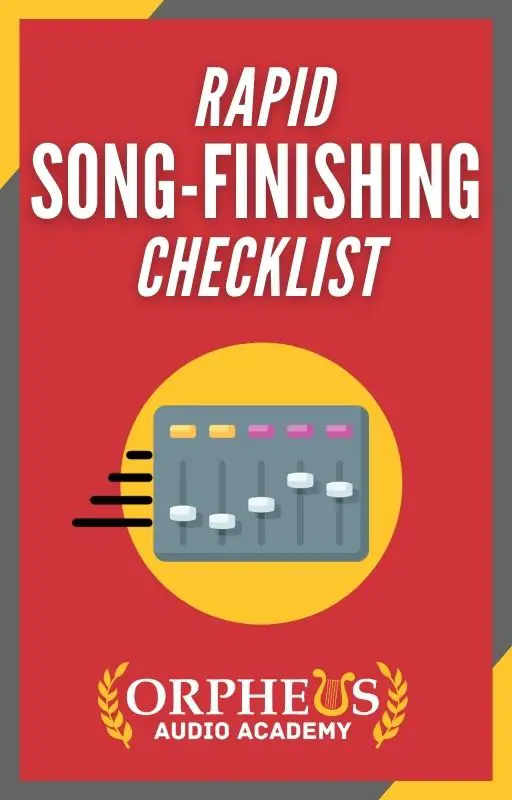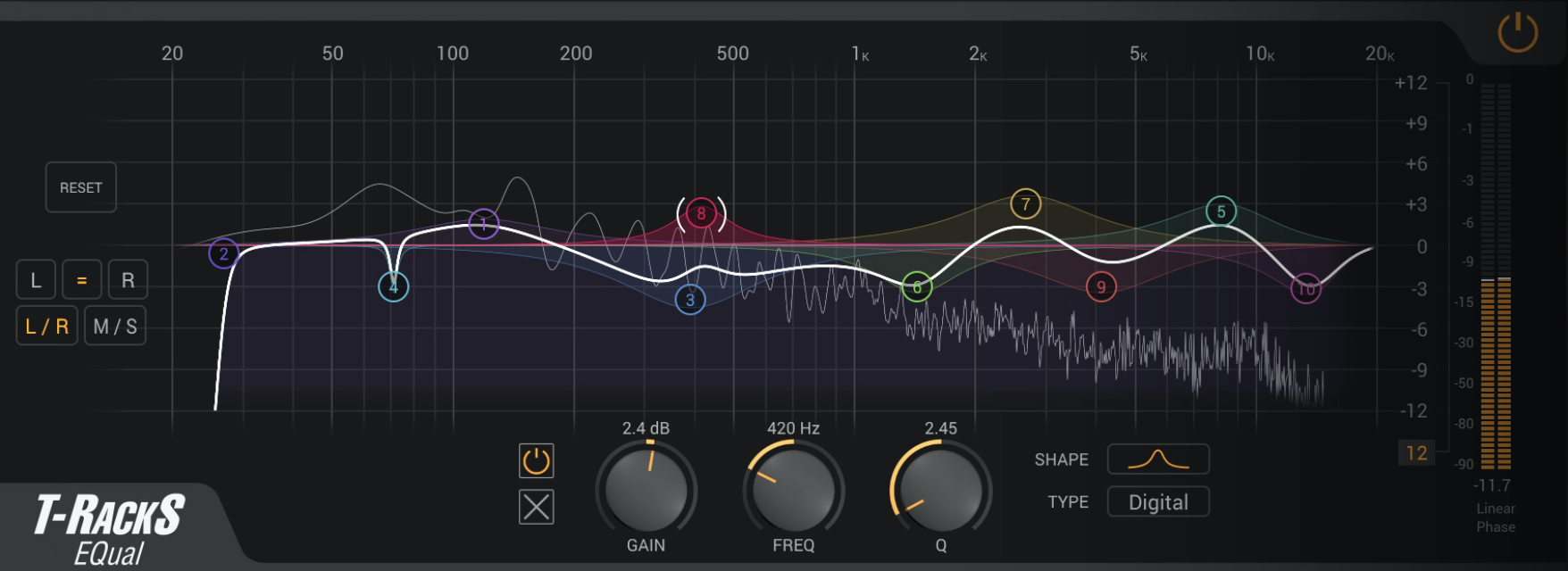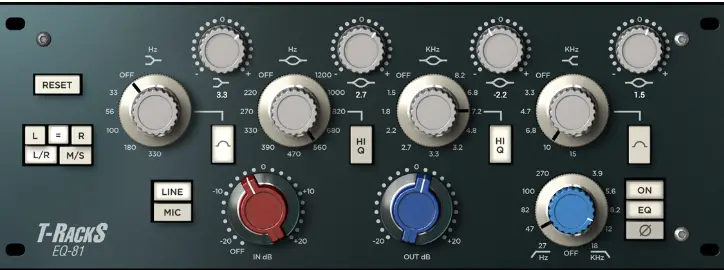When it comes to mixing a song, there are a lot of different opinions on what order you should do your processing in.
Some people say you should compress first, and others say you should EQ first. So, which one is the right way to go?
There is no right answer for whether you should use EQ or compression first. Use EQ in front of your compressor for creates a warmer, rounder sound, whereas using compression first produces a cleaner, clearer tone.

Create Better Songs, Faster
Click below to download my free song-finishing checklist to help you create radio-ready songs without taking months to complete them.
EQ Or Compress First?
Whether you EQ or Compress first depends on the type of sound you are going for.
Using EQ in front of your compressor creates a warmer, rounder sound, whereas using compression first produces a cleaner, clearer tone.
Compressing first can help to even out the levels of your track and make it sound more polished, which can help shape your EQing decisions.
EQing first can help you to shape the overall sound of your track before you start adding other processing.
Keep in mind that adding the compressor after EQ can introduce new frequencies to your track, which may mean the track will need to be EQed again.
By the way, you can check out my complete guide to mixing with compression here.
What happens when you EQ BEFORE Compression?

If you compress first, any ugly frequencies that are brought up by the compression will be attenuated by the EQ. So if you have a track that is sounding a bit harsh after compression, try EQing it before compression to see if that helps.
If you adjust your EQ later, then that will throw off your compression, because any level change in the EQ will cause the compressor to react.
You could end up chasing your tail unless you set your EQ and leave it alone.
What happens when you compress AFTER EQ?
If you compress after EQ, you may find that you need to do less compression overall because the EQ will have already taken care of some of the level peaks. This can be helpful if you're trying to avoid over-compressing your track.
Downside is your compressor will be reacting to frequencies you don't want
So, which one should you use? Compress first or EQ first? Ultimately, it's up to you and what sounds best for your track. Try out both approaches.
However, there may be a third option that is even better...
Which Is Best? EQ or Compression First?

Both!
Yes, that's right, you can do both.
So your plugin chain would look something like this.
- Correction - Digital EQ
- Compression
- Color - Analog EQ
1. Correction - Digital EQ
First you cut any frequencies you don't like using a clean digital EQ.
We don't boost frequencies yet because we don't want the compress to be overly reacting to the frequencies we just boosted.
This will make your compressor more effective, which you'll add next.
2. Compression
Now your compressor can level out your track, and it will only react to the frequencies you actually want to be present.
3. Add Color - Analog EQ
Finally, if your track needs it, you can add some EQ boosts with an analog style EQ plugin, which have the added effect of introducing some desirable saturation and color to your track.
Finish More Radio-Worthy Songs, Faster!
Properly EQing and compressing is just one piece of the puzzle when it comes to producing pro-quality songs.
If you want a proven step-by-step formula for mixing radio-worthy tracks from start-to-finish...
Create Pro-Mixes, Faster
Click below to download my free song-finishing checklist to help you create radio-ready songs without taking months to complete them.
This checklist will walk you through a proven step-by-step mixing and mastering process so that you don't ever have to guess or wonder what to do next.
You'll know exactly what to do, and when, so you can quickly mix, master, and finish more tracks.
I hope you found this post valuable on how to get vocals to sit upfront in the mix helpful.
If so, feel free to share, and let me know in the comments below…
